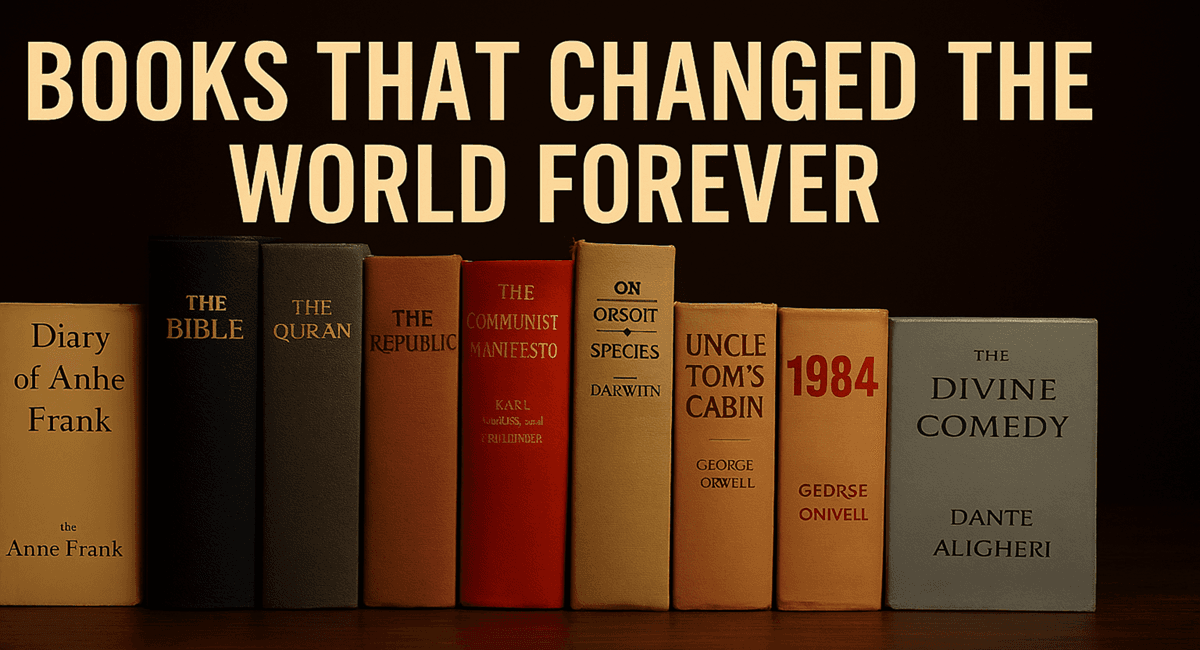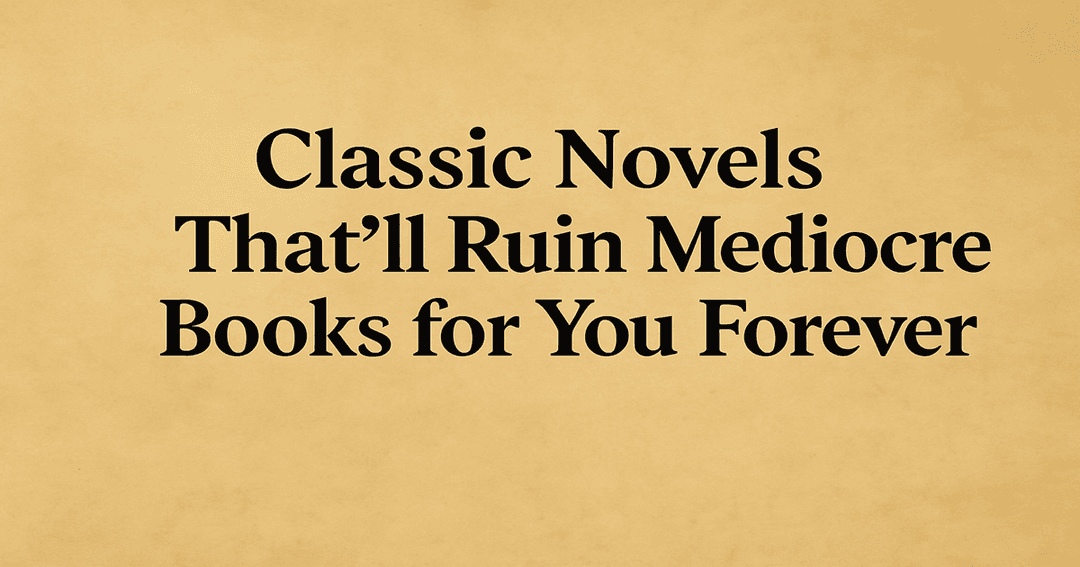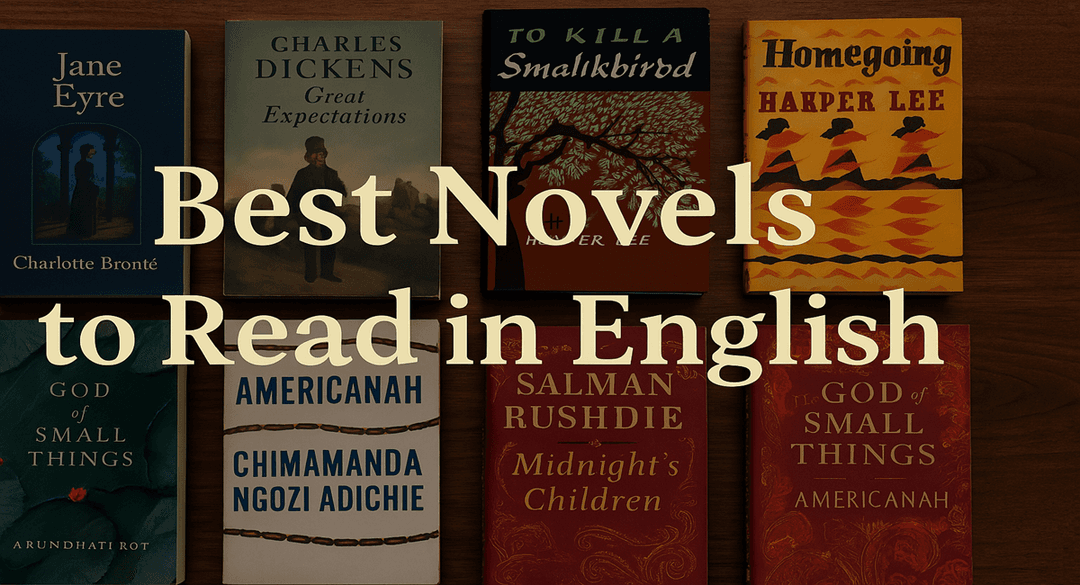Throughout human civilization, certain books have possessed the extraordinary power to reshape societies, challenge established norms, and fundamentally alter the trajectory of human thought. These literary masterpieces didn't just entertain readers—they sparked revolutions, launched scientific breakthroughs, and transformed entire cultures. From ancient philosophical treatises to groundbreaking scientific works, these influential books continue to impact our world today.
1. The Bible (Various Authors, ~1200 BCE - 100 CE)
Perhaps no single book has influenced human civilization more profoundly than the Bible. This collection of sacred texts has shaped moral frameworks, legal systems, and cultural values across continents for millennia. Its impact extends far beyond religion, influencing art, literature, politics, and social movements throughout history.
Historical Impact: The Bible's teachings formed the foundation of Western civilization, influenced the development of human rights concepts, and continues to guide billions of people worldwide. Its stories and moral teachings have become embedded in global culture, affecting everything from legal systems to everyday language.
2. The Quran (610-632 CE)
As the central religious text of Islam, the Quran has profoundly influenced over 1.8 billion Muslims worldwide and shaped entire civilizations across the Middle East, Africa, and Asia. Its teachings established comprehensive guidelines for personal conduct, governance, and social organization.
Cultural Transformation: The Quran's influence extends to law (Sharia), architecture, science, and literature across the Islamic world. It sparked the Islamic Golden Age, contributing to advances in mathematics, medicine, and philosophy that eventually reached Europe.
3. The Origin of Species by Charles Darwin (1859)
Darwin's revolutionary work fundamentally changed humanity's understanding of life itself. By presenting compelling evidence for evolution through natural selection, this book challenged religious and scientific orthodoxy, sparking debates that continue today.
Scientific Revolution: The book transformed biology from a descriptive science into a predictive one, laying the groundwork for modern genetics, medicine, and conservation. Its impact extends beyond science, influencing psychology, anthropology, and philosophy.
4. The Communist Manifesto by Karl Marx and Friedrich Engels (1848)
This concise political pamphlet became one of history's most influential political documents. Its critique of capitalism and vision for worker solidarity inspired revolutionary movements across the globe and shaped 20th-century politics.
Global Political Impact: The Manifesto influenced the Russian Revolution, the rise of communist states, labor movements worldwide, and continues to inform discussions about economic inequality and social justice.
5. The Republic by Plato (~375 BCE)
Plato's philosophical masterpiece laid the foundations for Western political thought and philosophy. Through Socratic dialogues, it explores justice, governance, and the ideal society, concepts that continue to influence political systems today.
Philosophical Foundation: The Republic introduced concepts of philosopher-kings, the theory of Forms, and systematic political philosophy that influenced countless thinkers, from Aristotle to modern democratic theorists.
6. The Wealth of Nations by Adam Smith (1776)
Smith's groundbreaking economic treatise established the principles of free-market capitalism and introduced concepts like the "invisible hand" that continue to shape global economic policy.
Economic Revolution: This book became the foundation of modern economics, influencing everything from trade policies to business practices. Its principles helped guide the Industrial Revolution and continue to inform economic debates today.
7. Mein Kampf by Adolf Hitler (1925)
While representing one of history's darkest chapters, this book's influence cannot be ignored. Hitler's manifesto outlined the ideological framework that led to World War II and the Holocaust, demonstrating literature's potential for both creation and destruction.
Historical Warning: The book serves as a crucial reminder of how influential writing can be used to manipulate masses and justify atrocities. Its study remains important for understanding fascism and preventing similar tragedies.
8. The Art of War by Sun Tzu (~500 BCE)
This ancient Chinese military treatise transcended its original purpose to become a guide for strategy in business, politics, and life. Its principles of strategic thinking remain remarkably relevant across diverse fields.
Timeless Strategy: The book's influence extends far beyond military applications, informing business strategy, negotiation tactics, and leadership principles in modern corporate and political environments.
9. The Prince by Niccolò Machiavelli (1532)
Machiavelli's pragmatic approach to political power introduced the concept that "the ends justify the means," fundamentally changing how people understood politics and governance.
Political Realism: The Prince established political realism as a school of thought, influencing leaders from Napoleon to modern politicians. It separated politics from morality, creating frameworks still used in international relations.
10. Uncle Tom's Cabin by Harriet Beecher Stowe (1852)
This anti-slavery novel galvanized the abolitionist movement in America and influenced international opinion about slavery. Abraham Lincoln allegedly called Stowe "the little woman who wrote the book that made this great war."
Social Justice Impact: The novel humanized enslaved people for white readers, contributing significantly to the growing anti-slavery sentiment that helped precipitate the American Civil War and the eventual abolition of slavery.
11. The Structure of Scientific Revolutions by Thomas Kuhn (1962)
Kuhn's analysis of how scientific knowledge progresses introduced the concept of "paradigm shifts," revolutionizing our understanding of scientific advancement and knowledge acquisition.
Academic Revolution: The book transformed philosophy of science, introducing concepts like "normal science" and "paradigm shifts" that influence how we understand progress in all fields of knowledge.
12. Silent Spring by Rachel Carson (1962)
Carson's environmental wake-up call exposed the dangers of pesticides and launched the modern environmental movement. Her work led to the banning of DDT and the creation of the Environmental Protection Agency.
Environmental Awakening: The book sparked global environmental consciousness, influenced environmental legislation worldwide, and established ecology as a serious scientific and political concern.
13. The Interpretation of Dreams by Sigmund Freud (1899)
Freud's exploration of the unconscious mind revolutionized psychology and influenced literature, art, and popular culture. His theories about dreams, repression, and psychological development changed how humans understand themselves.
Psychological Revolution: The book established psychoanalysis, influenced modern psychology and psychiatry, and introduced concepts like the unconscious, defense mechanisms, and dream interpretation that permeate popular culture.
14. The Analects of Confucius (~500 BCE)
This collection of Confucian teachings shaped Chinese civilization for over two millennia, emphasizing harmony, respect for authority, and moral cultivation. Its influence extends across East Asian cultures.
Cultural Foundation: The Analects established principles of governance, education, and social relationships that influenced Chinese, Japanese, and Korean societies, affecting everything from family structures to governmental systems.
15. The Gutenberg Bible (1455)
While not influential for its content alone, this was the first major book printed using movable type in the West. It demonstrated the potential of printing technology, revolutionizing the spread of knowledge and literacy.
Information Revolution: The Gutenberg Bible proved that books could be mass-produced, leading to the democratization of knowledge, increased literacy rates, and the rapid spread of ideas that fueled the Renaissance and Reformation.
The Lasting Power of Influential Literature
These fifteen books demonstrate literature's extraordinary power to shape human civilization. They've sparked revolutions, challenged established orders, introduced new ways of thinking, and continue to influence our world today. From ancient philosophical treatises to modern environmental wake-up calls, these works prove that the written word remains one of humanity's most powerful tools for change.
The influence of these books extends far beyond their original contexts, continuing to shape contemporary discussions about politics, science, religion, and society. They remind us that ideas, when powerfully expressed and widely shared, possess the remarkable ability to change the world.
Whether inspiring positive transformation or serving as cautionary tales, these influential books have earned their place in history by fundamentally altering how humans understand themselves and their world. Their continued relevance proves that great literature transcends time, speaking to universal human experiences and concerns that remain as important today as when these works were first written.
Why These Books Continue to Matter
In our digital age, the influence of these classic works persists because they address fundamental questions about human nature, society, and our place in the universe. They offer timeless insights that remain relevant despite changing technology and social structures. Understanding these influential books helps us comprehend not only where we've been as a civilization but also where we might be heading.
These literary masterpieces serve as both inspiration and warning, demonstrating the profound responsibility that comes with the power to influence minds through the written word. They remind us that books don't just reflect history—they make it.




